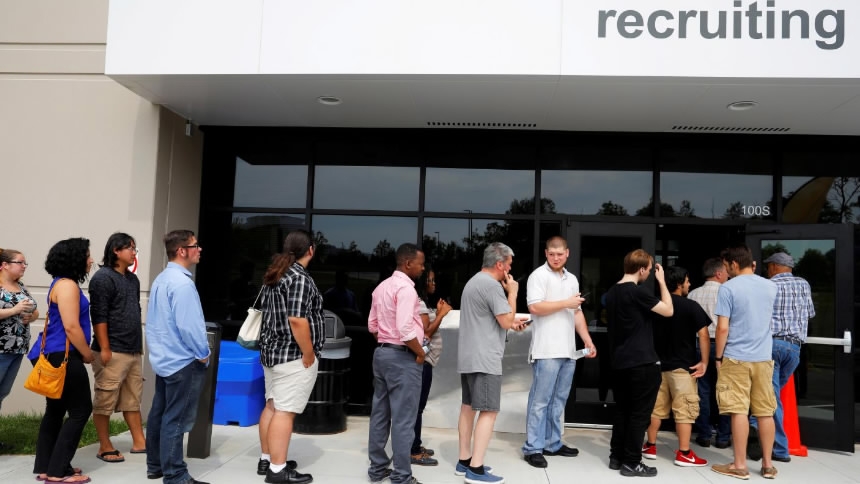
Business
16:48, 05-Jan-2018
Solid US job growth expected in December
CGTN

US employers likely maintained a brisk pace of hiring in December amid growing confidence in the economy, which could pave the way for the Federal Reserve to increase interest rates in March.
Nonfarm payrolls probably increased by 190,000 jobs last month, according to a Reuters survey of economists, after a gain of 228,000 in November. Despite the anticipated moderation, employment gains would still be above the monthly average of 170,000 over the past three months.
Harsh weather in some parts of the country likely contributed to some of the job growth slowdown in December.
For all of 2017, the economy is expected to have created around 2 million jobs, slightly below the 2.2 million added in 2016. The Labor Department is due to release its closely watched employment report at 8:30 a.m. ET (1330 GMT) on Friday.
Job growth surged in October and November after being held back in September by back-to-back hurricanes, which destroyed infrastructure and homes and temporarily dislocated some workers in Texas and Florida. A solid employment report would add to the upbeat assessment of the economy signaled in housing, consumer spending and manufacturing data.
“Fed officials continue to look for signs that the US economy remains on the expansion path, December’s employment report should further support such an outlook,” said Sam Bullard, a senior economist at Wells Fargo Securities in Charlotte, North Carolina. “We believe the Fed will be in a position to raise rates in March.”
Job growth in line with expectations could heighten criticism of a 1.5-trillion-US-dollar package of tax cuts passed by the Republican-controlled US Congress and signed into law by President Donald Trump last month.
The fiscal stimulus, which includes a sharp reduction in the corporate income tax rate to 21 percent from 35 percent, is occurring with the economy operating almost at capacity. There are concerns the economy could overheat.
“With the tax cuts we get solid GDP growth in the near-term and then a fiscal hangover, which will likely put the economy at a greater risk of recession,” said Ryan Sweet, senior economist at Moody’s Analytics in West Chester, Pennsylvania.
Source(s): Reuters

SITEMAP
Copyright © 2018 CGTN. Beijing ICP prepared NO.16065310-3
Copyright © 2018 CGTN. Beijing ICP prepared NO.16065310-3